The Rise of Fast Charging Infrastructure
As electric vehicles continue to dominate highways and driveways across the U.S., businesses and property owners are racing to install reliable, high-speed charging stations. Among them, Level 3 EV chargers, also known as DC fast chargers (DCFC), are the top choice for commercial and public sites where charging speed is critical.
But one question always comes first: How much does a Level 3 EV charger cost?
The answer isn’t simple. Prices range from around $5,000 for entry-level models to over $50,000 for ultra-fast systems. The cost varies by power output, connector type, software capability, and installation complexity. Like cars, base models are cheaper, but add-ons and infrastructure can quickly raise the total.
The real question isn’t just how much it costs — it’s what value it brings back to your business.
What Is a Level 3 EV Charger?
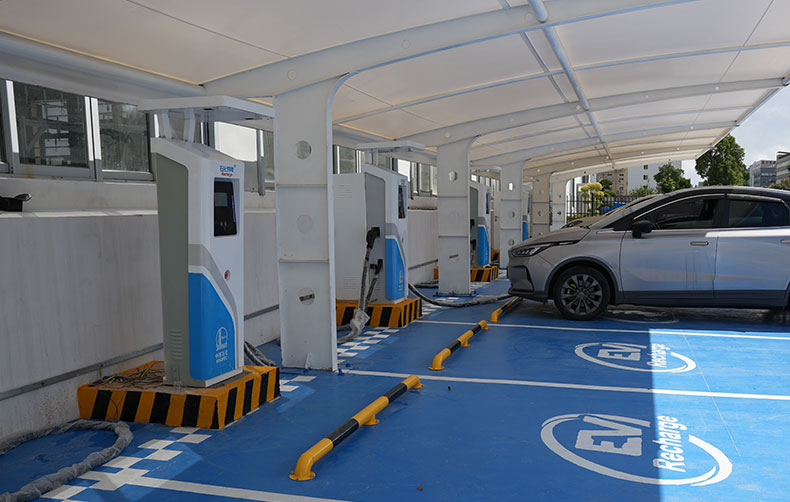
A Level 3 charger, also known as a DC fast charger (DCFC), is the fastest way to charge an electric vehicle.
Unlike Level 2 chargers that use AC power and rely on the vehicle’s onboard converter, Level 3 chargers feed direct DC power straight to the battery.
According to SAE standards, any charger capable of adding at least 25 miles of range in 30 minutes qualifies as Level 3. Most DC fast chargers can charge an EV battery from 20% to 80% in about 20–40 minutes, and high-end 350–500kW units can add over 200 miles in 15 minutes.
Because of their performance, Level 3 chargers are the go-to solution for highways, commercial hubs, fleet depots, and public fast-charging networks across North America.
As of 2025, more than 15% of all public EV chargers in the U.S. are DC fast chargers, and that number is growing fast as EV adoption surges.
Level 3 EV Charger Cost and Price Factors
The Level 3 EV charger cost depends on multiple layers of investment — equipment, power capacity, installation, and software integration.
| Power Output | Equipment Price Range (USD) | Typical Charge Time (20%→80%) | Ideal Use Case |
|---|---|---|---|
| 50–100kW | $5,000–$15,000 | 30–60 minutes | Retail centers, parking lots |
| 120–180kW | $15,000–$30,000 | 20–40 minutes | Highway service areas, transport hubs |
| 250–500kW | $30,000–$60,000+ | 15–25 minutes | Fleet depots, large-scale charging hubs |
Power capacity is the biggest cost driver. Lower power chargers (50–100kW) suit early EVs or PHEVs, while mid-range models (120–180kW) are the sweet spot for most commercial EVs. The high-end 250–500kW chargers, supporting 480V–800V systems, deliver ultra-fast charging but also require advanced electrical infrastructure.
Connector Types and Compatibility
Connector standards also affect cost and usability. North America primarily uses CCS1, while CHAdeMO, NACS (Tesla), and GB/T are common in other regions.
As Tesla opens its NACS standard, many major automakers — Ford, GM, Mercedes — are adopting it. For site operators, choosing multi-standard chargers or swappable connector models ensures long-term compatibility and higher ROI.
Software and Smart Management
Beyond hardware, software features significantly impact Level 3 EV charger cost. Chargers supporting OCPP 1.6 or 2.0 can integrate seamlessly with cloud management platforms for remote monitoring, smart load balancing, billing, and maintenance alerts.
Some high-end models include touchscreens, user interfaces, and API connections to link with enterprise systems like ERP or CRM. These features may raise upfront cost but dramatically improve uptime and efficiency.
Installation and Infrastructure Costs
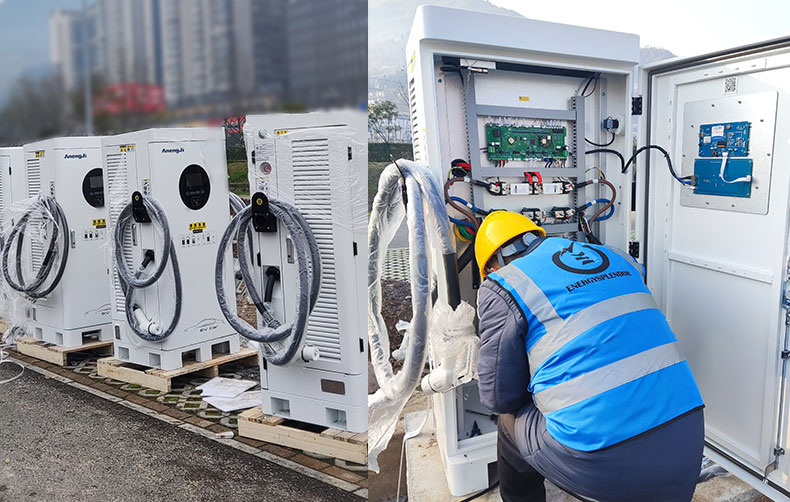
Hardware is only part of the total expense. Installation and power upgrades often make up 40% or more of total cost.
Level 3 chargers require 480V high-voltage connections, sometimes involving transformers, conduits, and switchgear upgrades. Depending on site complexity, installation can add $10,000–$50,000 to the budget.
That’s why a professional site power audit is essential before project launch — it helps prevent costly surprises later.
Why Level 3 Chargers Are Worth the Investment
For most businesses, the real value of DC fast charging isn’t just the revenue from charging — it’s the brand equity, customer traffic, and loyalty it brings.
Fast charging stations attract high-value EV drivers, encourage longer dwell times, and create strong sustainability branding. For example, a Midwest auto service chain partnered with a charging provider to install DC fast chargers across its 2,000 locations. The result?
- Customer stay time increased by 40 minutes
- Average ticket value rose 22%
- Brand perception improved dramatically
Offering EV charging for employees can also boost morale and retention while reinforcing your company’s commitment to clean energy.
Government Incentives and Grants
Government support plays a big role in improving ROI.
Many regions now offer EV charging subsidies that cover up to 50–100% of equipment and installation costs.
United States: The NEVI Program provides up to $100,000 per charging port for public DC fast chargers meeting specific standards.
Canada: The iZEV Infrastructure Program supports public and workplace installations.
Europe: EU member states offer tax deductions and green energy credits.
Asia: Several cities in China and Southeast Asia offer dual rewards for installation and operation.
To qualify, chargers typically must support open protocols (OCPP), high uptime, and data reporting. Working with an experienced vendor can streamline the application process and maximize financial returns.
Getting Started — How to Plan Your DC Fast Charging Project
Setting up a commercial EV charging network can seem overwhelming, but professional partners simplify the process.
A complete service provider can handle:
- Free site and power assessment
- Subsidy eligibility review
- Customized deployment plans
- ROI simulation and payback analysis
Starting small—with a mix of Level 2 + Level 3 units—helps control cost while building scalable infrastructure for future expansion.
Why Choose Our DC Fast Charging Solutions
We offer a full range of DC fast chargers from 50kW to 500kW, compatible with CCS1, CHAdeMO, NACS, and GB/T standards.
All units comply with OCPP 1.6/2.0, feature smart load management, and support both public and fleet charging operations.
With 40,000m² of production capacity and a global service network, our chargers are already deployed in over 100 countries, powering real estate developments, transportation hubs, and logistics fleets across North America, Europe, and the Middle East.
Ready to See Your Cost Breakdown?
The true Level 3 EV charger cost depends on much more than hardware.
We can help you model your energy load, identify available incentives, and project ROI before installation.
📩 Contact us today to request your free “DC Fast Charger Cost Whitepaper” and personalized quote.
Let’s build your smart charging network together.
FAQ – Level 3 EV Charger Cost
1. How much does a Level 3 EV charger cost?
Most Level 3 chargers cost between $15,000 and $50,000, depending on power output, brand, and features. Installation adds another $10,000–$50,000 based on site conditions.
2. What affects DC fast charging station price the most?
Power capacity (kW rating), connector types, and electrical upgrades are the main cost drivers.
3. Is installing a Level 3 charger worth it for small businesses?
Yes. Many local businesses gain new customers and brand visibility by offering fast charging, especially in areas with growing EV traffic.
4. Are there government incentives for EV fast chargers?
Yes. Federal and state programs like NEVI can cover up to 80–100% of hardware and installation costs.
5. What’s the average ROI for a Level 3 EV charger?
Depending on usage rates and energy pricing, most businesses see a return within 3–5 years, especially when incentives are applied.

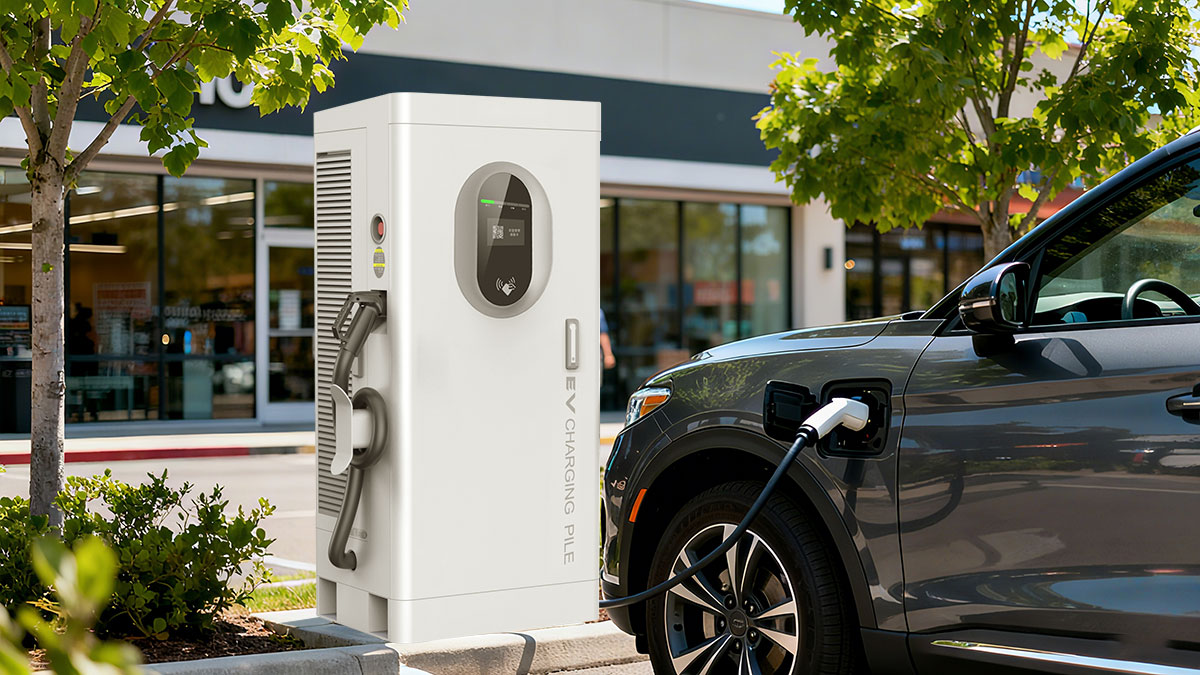
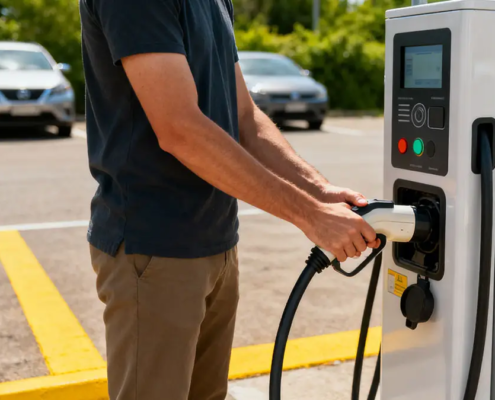
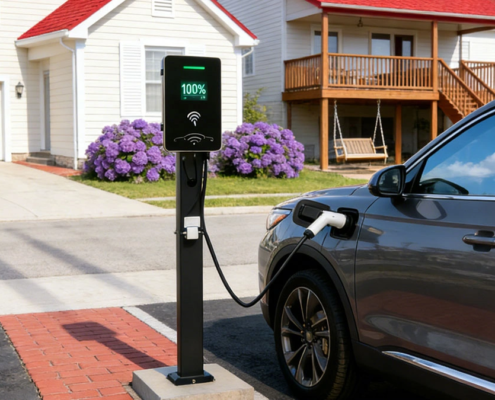
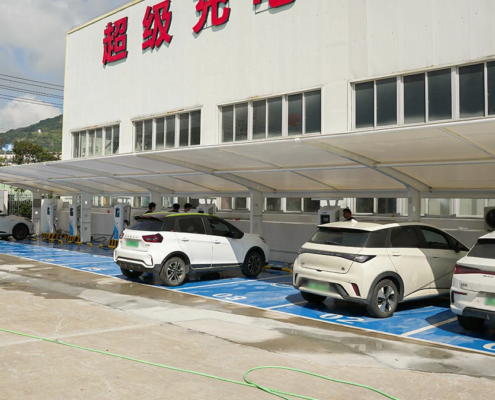



Leave a Reply
Want to join the discussion?Feel free to contribute!